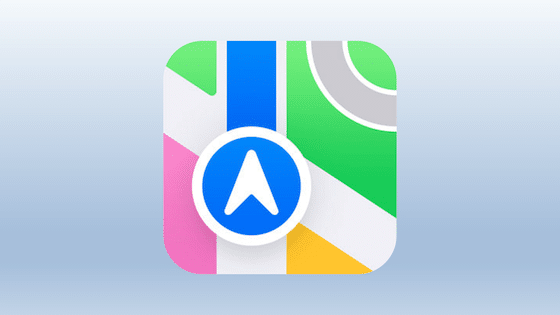Sridhar Ramaswamy used to run Google’s ad business. Now he wants to tear it down. Or at least peel off a healthy segment of users hungry for an ad-free, privacy-friendly way to search.
Sridhar has launched Neeva, a new online search app that is ad-free, subscription-based and that vows to offer personalization while keeping your data secure.
According to the New York Times, Neeva will be free through year-end. After that, users will pay a subscription for which Neeva hasn’t yet set a price. This stands in contrast with DuckDuckGo, another recent entry to the search game. DDG does take ads, is free, but assures users that it does not track their behavior.
A Serious Threat?
People take Neeva seriously (though skeptically) for a few reasons.
The people behind Neeva is one factor. Ramaswamy ran Google’s ad business. Who is in a better position to know how to slay that dragon? Co-founder Vivek Raghunathan ran monetization at YouTube.
And there are is a very serious group of Silicon Valley legends backing the project. The company has raised $37.5 million, with blue-chip VCs Sequoia Capital and Greylock Partners (and Ramaswamy) leading the way. Also investing is Reid Hoffman, the LinkedIn founder and member of PayPal’s founding team. He now plays the role of tech oracle on the “Masters of Scale” podcast.
The second, perhaps more profound reason, is that many believe search is long overdue for innovation. And view Google’s ad-supported model as inherently in conflict with delivering optimal user experience.
Sequoia (an early Google backer) offers this rationale for Neeva in a blog post.
“They [Google, Facebook, Amazon, etc.] fail to meet the demands of today’s digital world: how do we search when the information we seek no longer lives in tidy public databases or indexable websites, but everywhere we work — in our personal email, on a hundred different cloud applications, on our private desktops, and inside our personal phones?” the VC writes. “We continue to believe there is room in the space to innovate.”
The post goes on to describe how Neeva differs from Google.
“Your information is private with Neeva. Your data belongs to you and is never sold to advertisers. You can search for hiking boots and be shown sites that empower you to make a better decision about which hiking boots to buy — rather than a list of product ads. You control exactly what you’re searching for — whether it’s on the public web or in personal accounts you choose to connect. At its core, Neeva is a private, personal hub for all the information that matters most to you.”
In a post on the Neeva blog, Ramaswamy offers a few illustrations of how the tool differs from Google and others. Here is one example.
“If you’re upgrading your study (since we’re all spending a lot of time at home these days), we can help you find the best standing desk and home monitor. Neeva prioritizes quality review sites and brands you trust instead of flooding your screen with paid results. We can also help you save and organize your research so you can come back to it easily.”

The Local Angle
We asked some friends in the local search community what they think of Neeva and its chances for success. The general view was skeptical. But that’s not surprising for a project that includes “we compete with Google” in its pitch deck.
Mike Blumenthal, Director of Local Research at GatherUp.com, shared a few red flags about Neeva.
“To me the future of ‘search’ is local. Despite COVID and its acceleration of online shopping, that won’t change the fundamental aspect that folks like to shop in the real world. I see competing with Google and its Knowledge Graph and Local as a much bigger issue than competing on Web search,” Mike said. “If Neeva doesn’t address Local then they will be leaving the future on the table.”
He also doesn’t really believe search has an ad-free future.
“A public shifts away from an ad-driven world and towards a more private paid model will occur, if it occurs at all, very, very slowly,” Mike said. “There is nothing less secure than an Android and yet lots of people use them because of the perceived cost-benefit. Thus if they are to succeed, it will be a long and difficult journey.”
Justin Sanger, a longtime entrepreneur in local who is currently chief revenue officer of OMG National, also thinks Neeva’s pursuit of an ad-free future is misguided.
“We have seen this playbook before and the $37.5 million [that Neeva has raised] in is not too far off from the revenue Google makes in an hour or two every day,” Justin told us. “Data is critical to the consumer’s local search experience…The fundamental conflict I see is the lack of awareness of how data helps the giants create the best users experience possible, which translates into the most relevant ads. The future is NOT ads free. The future is ads that are extensions of our daily life, needs, and activity.”
Another issue that caused Mike Blumenthal’s eyebrows to arch was Neeva’s apparent learning curve.
“When you sign up you get this message: ‘All new testers receive a personal (and quick!) onboarding session with a Neeva specialist, as well as dedicated customer support should you need any help with the product or your search results.’ It doesn’t bode well that a user needs an onboarding session.”
Andrew Shotland is CEO and founder of Local SEO Guide. He also speaks frequently on what can generally be described as “how Google works”. He thinks Neeva’s success depends on the motivational power of privacy. And on its pricing strategy.
“It will be interesting to see who the early adopters are. My 13-year-old daughter, who is privacy obsessed, is a big DuckDuckGo user. But I can’t see her generation wanting to pay for search. That said, if they go the freemium route and the free version blows DDG out of the water, I could see her using it a lot, which will give Neeva a lot of chances to bring her on board over time,” Andrew said.
“For those of us with cashflow who value privacy, this seems like a super niche service. Perhaps those of us who have been victims of identity theft might see this as an important service to have. I predict a lot of bundling in with other services. As in, ‘Subscribe to Lifelock and get a free year of Neeva!’.”
Andrew suspects Neeva is training its sights more on DuckDuckGo than Google.
“The thing about search is you only need a small share to have an enormous business. So I would say these guys are taking on DDG, not Google,” Andrew said.
We also checked in with David Mihm. He’s the founder of Tidings, former head of product at ThriveHive, and all-around local search expert. He joined the chorus of skeptics, with the caveat that he hasn’t had a live demo.
“My sense is that it will remain niche even if it’s wildly successful. They’ll have to do better on quality than DDG in head-to-head since as …even DDG has significant traction among privacy-focused users,” David told us. “Generally, I feel the only threats to Google in search are either an antitrust breakup — not just a fine — or Amazon.”
Is Subscription the Answer?
It’s notable that two companies taking a swing at key pillars of Google’s dominance – search and email — are doing so via the subscription path.
Neeva is, of course, pursuing subscription as an alternative to ads on the search side. Basecamp’s “Hey” is attempting to re-invent email, also as a subscription service.
In both cases, the addressable market isn’t everyone. It’s the (relative) discerning few who are willing to pay for a subscription in order to protect their privacy, enjoy a better experience, or avoid ads.
As Andrew noted, a small share of the market can equal success. However, we suspect the power players supporting Neeva, with their big money and reputations, have larger ambitions for the service.




